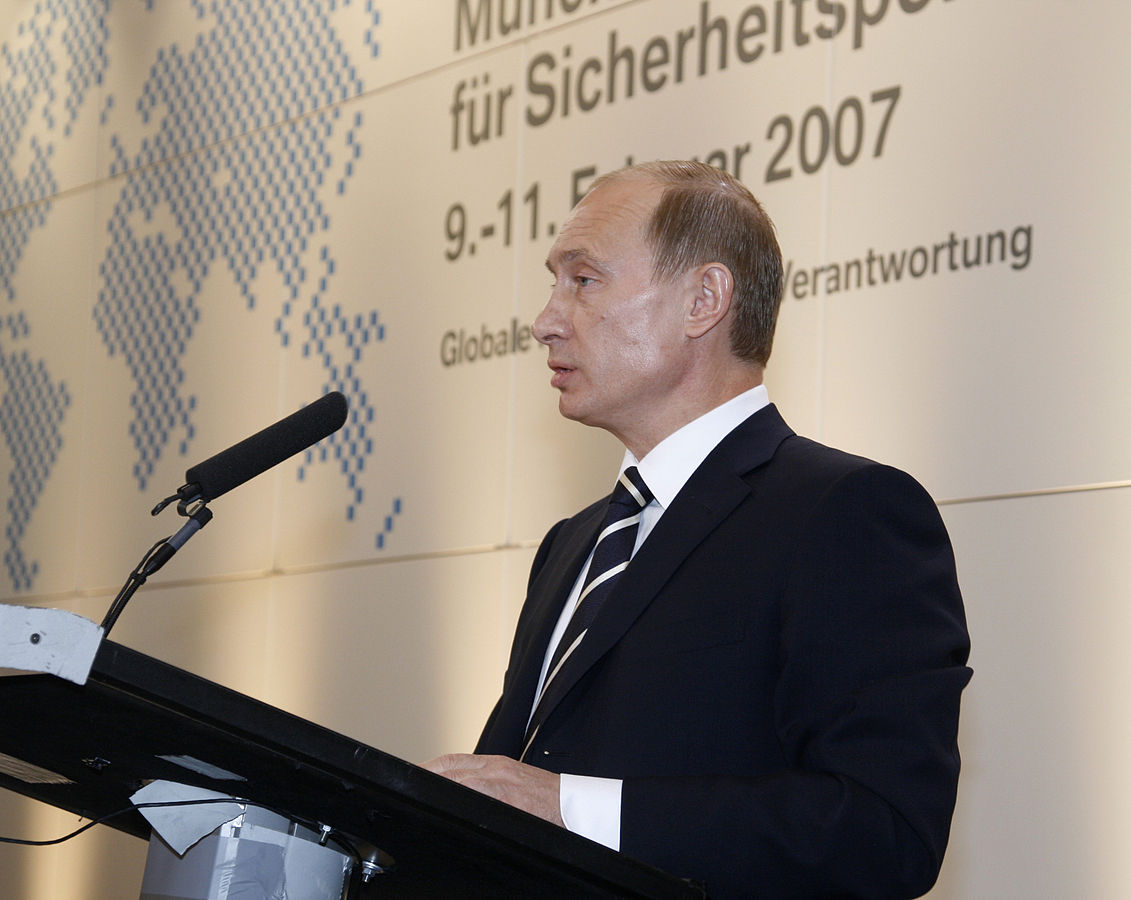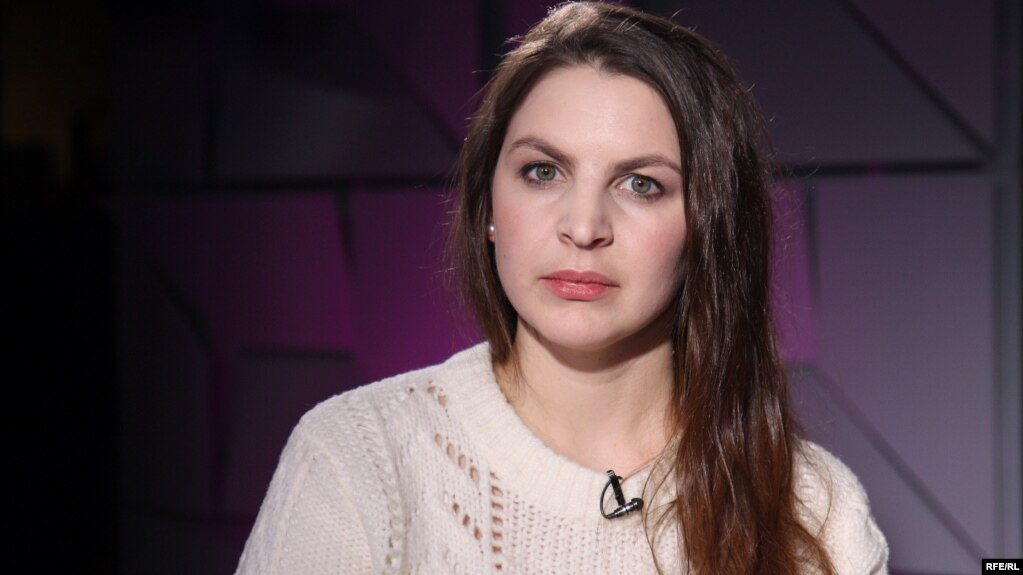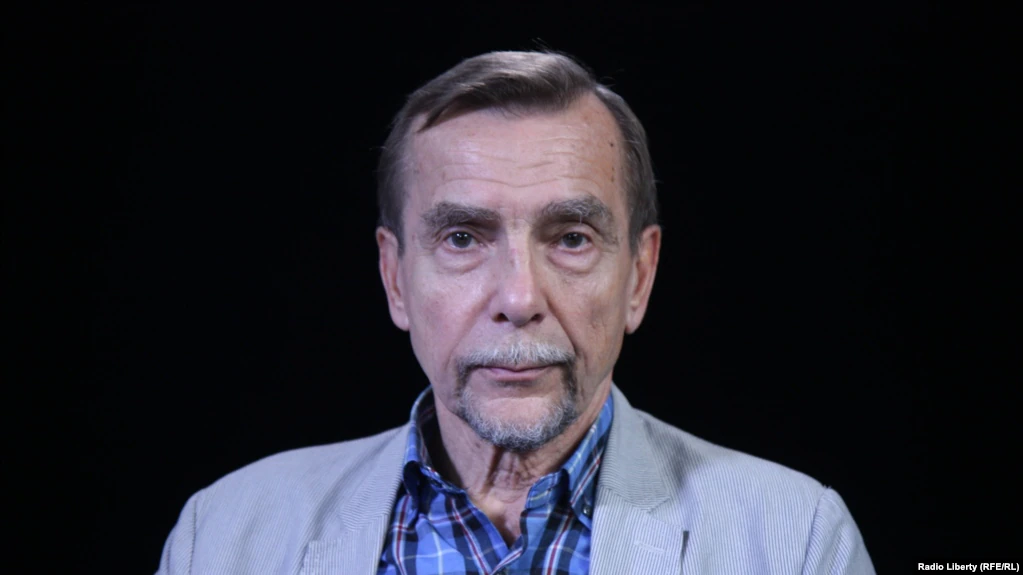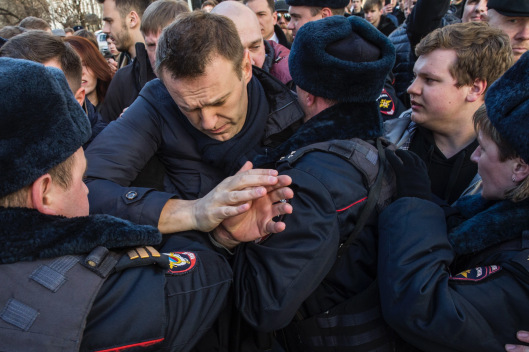By the decision of the Ministry of Justice of the Russian Federation, the media outlet is recognised as a foreign agent, so it must label its content in an above-mentioned manner. If the editorial staff does not comply with these instructions, it will face fines of about $4,000-6,000 for each violation. If the fine is ignored, the website will be blocked in Russia.
Meet the real Russia, today: Riga-based Meduza project launches English version
Labelling is not the only problem for the media outlet that has the status of a foreign agent. Cooperation with “labelled” media is dangerous for Russian advertisers. According to Meduza editorial staff, after the media outlet was recognised as a foreign agent on 23 April this year, advertising revenues fell sharply, and employees’ salaries had to be reduced by 30-50%.
A formal reason for recognising Meduza as a foreign agent was the fact that the media outlet was registered in Latvia. Indeed, SIA “Medusa Project” company has Latvian jurisdiction, but this does not mean that official Riga has any influence on the outlet’s editorial policy.
Once, Russian journalists tried to protect themselves from possible pressure by the authorities and so decided to register the media outlet in this Baltic country, a member of the European Union. “This is a foreign media outlet registered in Latvia. Foreign media outlets work in Russia according to certain legislation, they have to bear a certain legislative burden, the same way as Russian media work abroad,” head of the Moscow Union of Journalists Pavel Gusev commented on the situation around Meduza.
These words outline the real motive: mirror sanctions and revenge: Latvia blocks the broadcasting of 17 Russian propaganda channels, and Moscow retaliates against the Latvian-registered Meduza (in fact, the influential independent media outlet, whose readers live mainly in Russia).
Imitation of protection
A starting point for Russia’s current confrontation with the West, and especially the United States, is Vladimir Putin’s 2007 Munich speech, in which the Russian leader slammed the unipolar world and virtually revived the Cold War rhetoric.

Subsequently, the confrontation announced by the Russian president spilt over into the legal field. In the United States, the Magnitsky Act was initiated in 2010 and passed by Congress in 2012.
The reason for such actions by the United States was the case of Sergei Magnitsky – an auditor of a consulting company, who died in a Moscow pre-trial detention facility. As estimated by the Council of Europe, Freedom House, and Amnesty International, the trial of Magnitsky was politically motivated, and Russian law enforcement officials might have been involved in his death.

In response, in December 2012, the State Duma of Russia adopted the law “On measures to influence persons involved in the violation of fundamental human rights and freedoms, the rights and freedoms of citizens of the Russian Federation.” This document is often called “Dima Yakovlev law” (after Russian boy Dima Yakovlev who died in the United States as a result of negligence by his adoptive parents). In addition to banning United States citizens from adopting Russian children, the law creates a wide field for combating dissent, as it introduces the notions of “foreign agent status of individual” and “undesirable organisation” into the legal framework.
In fact, “foreign agents” as a definition for organisations in Russia appeared a little earlier. In the summer of 2012, the relevant amendments were made to the law “On non-profit organisations.” By definition, this category includes “non-profit organisations that receive funds and other property from foreign states, their government agencies, international and foreign organisations… and that participate, including in the interests of foreign sources, in political activities carried out in the territory of the Russian Federation.”
The main requirement for such structures is to be registered in the relevant register of the Russian Ministry of Justice. The organisations with a status of “foreign agent” must undergo an annual financial audit, provide information about their employees, inform about their status when applying to the authorities, when communicating with the media.
One can get on the “foreign agents” list following the petition filed by “vigilant citizens.” This is what happened to the Russian NGO Nasiliu.net [No to Violence] which provides assistance to victims of domestic violence. After a statement had been filed by “Mr Trubetskoy” (other details of the applicant are unknown), Russian regulators carried out an inspection and established that the organisation had been funded from abroad. Regulators regarded taking part in rallies and pickets, as well as drafting laws on domestic violence prevention as political activities.

According to Nasiliu.net director Anna Rivina, the organisation did not receive stable funding from abroad, did not receive grants from there, and had only a few private donations from foreigners. However, this was enough to get the appropriate status. Anna Rivina pointed out that the inclusion of the organisation into the register of “foreign agents” did not hinder further activities. They even expanded their activities. Now, the NGO works not only with victims of domestic but also police violence.
There has been no full-fledged parliamentary opposition in Russia long since. The alternative candidates sometimes have success at the local level, but the Kremlin tries to prevent the opposition from uniting. Alexei Navalny’s imprisonment is the clearest proof.
For the chekists, Navalny is the Yeltsin of 1987, Portnikov says
NGOs have become essentially the last islands of democracy in this country. As the Soviet dissidents were primarily human rights defenders and educators, so current Russian activists are trying to at least record, report, and, where possible, prevent the tyranny of the authorities.
The Russian leader has already found a justification for this: in his recent address to the Federal Assembly, Putin stated that Russia was being bullied constantly and unreasonably. According to his logic, blocking “agent” organisations could be something like another alleged defensive action against the West, which seemingly imposes its agenda on Russia (this message is widely disseminated by Russian propaganda).
The media having a “foreign agent” status deserve special attention.
As for the media, these are mostly various subprojects of Radio Free Europe/Radio Liberty (such as the Tatar-Bashkir service Azatliq Radiosi) and several independent Russian media outlets (such as the aforementioned Meduza). It is noteworthy that Krym.Realii project of the Radio Free Europe/Radio Liberty’s Ukrainian Service which covers the events in occupied Crimea was put on the list of “foreign agents.”
At the same time, the RFE/RL Ukrainian Service also has Donbas.Realii project dedicated to the Donetsk and Luhansk regions under occupation and under control of the Government of Ukraine. This project was not included in the list of “foreign agents.”
The burden of “agent” status forced Radio Liberty and Current Time to announce the transfer of their employees to offices in Kyiv and Prague. At the same time, their representative offices in Russia will not be closed.
The inclusion of individual citizens in the list of “foreign agents” is a relatively new but extremely toxic Russian practice. According to the amendments made in December 2019 to the already mentioned “Dima Yakovlev law,” “an individual, regardless of their citizenship or in the absence of such, may be recognised as an individual acting as a foreign agent, if they carry out in the territory of the Russia Federation in the interests of a foreign state, its bodies, international or foreign organisation… political activity and (or) purposeful collection of information in the field of military, military-technical activities of the Russian Federation which, if received by a foreign source, can be used against the security of the Russian Federation.”
Individuals with a “foreign agent” status are also entered in the register and must at least once every six months submit reports on their activities, including financial (on the expenditure of funds received from “foreign sources”). The same as legal entities with a “foreign agent” status, the individuals who fell into this category must inform about their status when disseminating information materials, appealing to the authorities, non-governmental or educational organisations.
Since there are currently only five people on the Russian list of individuals acting as foreign agents, it is worth mentioning each of them separately.
1. Lev Ponomaryov

Lev Ponomaryov is a Russian human rights activist. In 1997, he founded For Human Rights movement known for its opposition activities. In 2014, he condemned Russia’s policy towards Crimea, won several cases in the European Court of Human Rights (on violations of the right to freedom of assembly). He has been repeatedly detained and arrested for participating in rallies and pickets.
In 2019, his For Human Rights movement was included in the list of “foreign agents” and later was liquidated by a decision of the Supreme Court of the Russian Federation. Ponomaryov had to disband the organisation of the same name as it united a large number of human rights activists who did not keep accounts, so they actually switched to the “guerrilla” regime. The “foreign agent” status makes it virtually impossible for him to establish any non-governmental human rights associations in the future.
2. Lyudmila Savitskaya and Denis Kamalyangin


The two journalists work in one media outlet – the regional newspaper Pskovskaya Guberniya. This newspaper became known to the whole world when its journalists wrote about the death of soldiers of the 76th Airborne Assault Division (the division is stationed in the Pskov region), whose units took part in the battles for the Luhansk Airport. The newspaper is the only independent media outlet in the region and is known for many high-profile articles.
3. Sergey Markelov

A journalist from Petrozavodsk (Republic of Karelia), he also collaborates with Radio Liberty’s Sever.Realii project. But his principal place of employment is the local outlet 7x7. Sergey is known for his media materials about corruption in the republic, as well as an investigation into political prisoners in Uzbekistan.
4. Darya Apokhonchich

A performance artist from St. Petersburg, Darya has not been involved in traditional media activities. Her performances were aimed at supporting LGBT activists and victims of domestic violence, for which she was detained and fined.
As Sergey Markelov recalled, after his name was entered into the register of “foreign agents,” the number of orders for his media materials decreased significantly. After all, if a media outlet does not have the status of “foreign agent”, it should still label the articles and stories by the authors included in the relevant registers. Journalists are trying to appeal against the decision of the Ministry of Justice in court. The entry in the register is suspended during the trial, but the plaintiffs have little chance to win an action as they themselves admit.
Officially undesirable
However, a “foreign agent” is not the worst among the worse statuses that can be “conferred” by the Russian authorities. Getting on the list of undesirable organisations in Russia is much more dangerous.
The definition and procedure for inclusion in the relevant registers are prescribed in the same law “On measures to influence persons involved in the violation of fundamental human rights and freedoms, the rights and freedoms of citizens of the Russian Federation” also known as the “Dima Yakovlev law.”
The category of undesirable includes organisations that “pose a threat to the foundations of the constitutional order of the Russian Federation, the country’s defence capabilities and security and the state.” Only foreign or international (de jure registered outside the Russian Federation) fall into this category.
The mechanism for declaring an organisation as undesirable is as follows: the Federation Council (upper house of the Parliament of Russia) forms a so-called patriotic stop list – a list of organisations whose activities, according to MPs, are undesirable. In itself, the formation of this list (its appearance is an initiative of the representatives of the Liberal Democratic Party of Vladimir Zhirinovsky) does not have any legal consequences. The final decision is made by the Prosecutor General’s Office of the Russian Federation, which is to endorse a decision to declare an organisation undesirable.
They can be conditionally divided into the following categories:
- International organisations contributing to the development of a democratic society (European Platform for Democratic Elections, Open Society Foundation, European Endowment for Democracy, etc.)
- Research centres, think tanks (Association of the Schools of Political Studies of the Council of Europe, Atlantic Council, Jamestown Foundation, etc.)
- Organisations whose recognition as undesirable is a kind of favour to China. It is hard to believe that the European Falun Dafa Association, Friends of Falun Gong, or the Dragon Springs Buddhist pose a threat to Russia’s constitutional order. These and four other organisations are apparently on the undesirable list because they are related to the Falun Gong spiritual movement which is persecuted in China and classified among the “five poisons” (along with the Uyghur movement, the democratic opposition, supporters of Taiwan and Tibet independence) that endanger the ruling regime in China.
- The People in Need Czech human rights organisation and the Ukrainian World Congress (UWC) stand somewhat apart from the rest. The latter was included in the undesirable list without much discussion and explanation. According to UWC President Eugene Czolij, he learned about the relevant decision by the Federation Council (on inclusion in the “patriotic stop list”) and the Prosecutor General’s Office from the media.
Involvement in an undesirable organisation triggers repression. The Code of Administrative Offences of the Russian Federation contains Article 20.33, according to which participation in such an organisation shall be punishable with a fine of RUB 5,000 for individuals and of up to RUB 100,000 for legal entities.
Those, who are held liable twice during the year under this article, fall under Article 284.1 of the Criminal Code which provides for fines and community service, as well as imprisonment for up to six years. These sanctions are often imposed on representatives of Open Russia. This movement originated in Russia in 2001. It was initiated by a businessman, and later a political prisoner and politician Mikhail Khodorkovsky.
In different periods, Open Russia was engaged in civic education, protection of human rights, support for independent media. Its representatives participated in regional elections, supported Alexei Navalny. In April 2017, Open Russia was declared undesirable in Russia. Although the organisation in the classic sense did not exist at that time, Open Russia already functioned as a network movement.
Five Russian citizens involved in the movement were already charged under Article 284.1:
1. Anastasia Shevchenko

Anastasia, a Rostov-on-Don activist, was given a four-year suspended sentence (Amnesty International recognised her as a prisoner of conscience). Anastasia is a well-known figure in Russian democratic circles. In 2018, she headed the regional campaign headquarters of Ksenia Sobchak. In 2019, she won the Boris Nemtsov Prize for courage in defending democratic values.
Investigation, searches, and restrictions on movement imposed because of them played a tragic role in Anastasia’s life. Three children were under her guardianship, including a seriously ill daughter Alina, who was being treated in a special institution. Her mother visited her regularly and provided assistance. Investigators did not let Anastasia visit her daughter for a long time, she was able to get to her only when the girl was already in critical condition in the intensive care unit, where she died soon after. The death of Anastasia Shevchenko’s daughter sparked a rally in Rostov-on-Don under the slogan “Regime killed Anastasia’s child.”

2. Maksim Vernikov, leader of Open Russia office in Yekaterinburg, was sentenced to 300 hours of community service.

3. Yana Antonova, activist from Krasnodar, was ordered to pay a fine of RUB 15,000.

4. Anton Mikhalchuk, coordinator of the movement in Tyumen, emigrated in 2018 and is still wanted by the federal authorities.

5. The trial of Nizhny Novgorod journalist and businessman Mikhail Iosilevich, who is also accused of collaborating with Open Russia, continues up to this day.

Beware of extremism!
Banning extremist organisations is a common practice in every rule-of-law state. However, in Russia, such activities have their own specifics as the list of 83 organisations includes the group of skinheads, football hooligans, neo-Nazi organisations alongside with numerous associations of Jehovah’s Witnesses, followers of the aforementioned Falun Gong movement, indigenous national movements, human rights organisations.
Thus, the Karelian regional branch of the interregional youth NGO Youth Human Rights Group was recognised as extremist. The reason for this was the criticism of the Russian Orthodox Church clergy by the branch leader Maksim Yefimov.
Six Ukrainian organisations are among those recognised as extremist in Russia: Right Sector, UNA-UNSO (Ukrainian National Assembly – Ukrainian People's Self-Defence), Stepan Bandera Sports-Patriotic Association Tryzub (Trident), Brotherhood, Mejlis of the Crimean Tatar People, and Ukrainian Insurgent Army (UPA). Regarding the latter, the decision is obviously curious, because UPA exists in modern Ukraine only in the form of Brotherhood of the OUN-UPA veteran organisation.
At the end of March 2014, Kyiv recognised Mejlis as the highest representative body of the Crimean Tatar people. The organisations and activists quickly got under blow by the occupation authorities. The organisation was declared extremist in 2015, its leaders were banned from entering Crimea and accused of collaborating with Islamist organisations such as Hizb ut-Tahrir al-Islami, which is considered terrorist in Russia (for them, there is a separate FSB list which includes mostly fundamentalist organisations, as well as a Crimean branch of Right Sector – a structure that never existed).
Right Sector, Stepan Bandera Sports-Patriotic Association Tryzub (Trident), UNA-UNSO, and Brotherhood are the few Ukrainian organisations whose power is mythologised by Russian propaganda. FSB periodically reports on the detention of individuals who are allegedly the “Right Sector militants.” Either famous filmmaker Oleg Sentsov or just a group of migrant workers can be named so. Russian citizens are regularly intimidated by saboteurs from the mentioned organisation to increase the degree of anti-Ukrainian sentiments in society.
The blockade of Ukrainian information resources in Russia is motivated by the fight against extremism. According to the Federal Service for Supervision in the Sphere of Telecom, Information Technologies and Mass Communications, more than 20 Ukrainian online media outlets are currently banned. The reason is usually mentioning “extremist organisation” or quoting works that are considered extremist in Russia (there are more than 5,000 such works, including dozens of Ukrainian historical works on the Holodomor, the Liberation War, the crimes of Bolshevism).
There are also more sophisticated ways to put pressure on the Ukrainian media. On 19 July 2019, Ukrayinskyi Tyzhden media outlet received an e-mail from German provider Hetzner Online GmbH (the outlet located website on its servers) with a request to delete the article about Right Sector within 24 hours. The reason was the appeal of the Investigative Committee of the Russian Federation and the Federal Service for Supervision in the Sphere of Telecom, Information Technologies and Mass Communications to this provider which with a demand to remove the article (which was a common story about Right Sector and its interaction with the Ukrainian Armed Forces) about “extremist organisation,” citing the Russian legislation. Hetzner Online GmbH promised to block the website of Ukrayinskyi Tyzhden in case of non-compliance with these requirements. However, after the editorial office had communicated with the provider company and the situation had been made public at the diplomatic level, the matter was closed.
To act from abroad
Unlike Belarus, where several generations of political emigrants have formed during the years of Alexander Lukashenka’s dictatorship creating a number of organisations abroad, Russian oppositionists and activists in exile do not have their own extensive networks.
The annexation of Crimea and the aggression in Donbas became a kind of trigger for the activation of the Russian emigration. Thus, in 2014, Free Russia Foundation was established in Washington, uniting abroad Russians who decided to support pro-democracy movements in Russia, fight propaganda, and engage in human rights activities.
A branch of the foundation was the opening of the Free Russia House in Ukraine in 2017 – “an alternative embassy of Russian civil society.” Its founders were Russians who emigrated to Ukraine (mostly journalists). They stated that they wanted the House to become a “place of assembly” for Russian emigrants in Eastern Europe. In 2019, Free Russia was declared undesirable in Russia.
Already mentioned Mikhail Khodorkovsky has been in exile since 2013. In 2014, he resumed the Open Russia activities. Most activists of this organisation continue to work in Russia. Khodorkovsky also funded the activities of two online media outlets, Open Media and MBKh-Media. The Federal Service for Supervision in the Sphere of Telecom, Information Technologies and Mass Communications has repeatedly blocked them (due to cooperation with the “undesirable” Open Russia), so they are forced to broadcast through social media groups.

Olga Romanova is another important figure among Russian exiles. A well-known journalist (headed the Russian Business Week), she had an active public life. In 2012, Romanova joined the coordination council of the Russian opposition. After her husband’s arrest in 2008, she founded the illegal human rights movement Russia Behind Bars which records human rights violations in the penitentiary system and provides assistance to families of prisoners. In 2017, Olga Romanova emigrated to Germany where she continues to manage the organisation she founded.
Despite the policy of intimidation and repression, a large number of civil society activists in Russia are able to unite (formally or informally) and continue the struggle within the country. An example for them is obviously Alexei Navalny, who had the opportunity to emigrate but decided to stay in Russia despite persecution and imprisonment.
Read also:
- Russian TV is not about Russia: Ukraine, US, EU get six times more attention in last week’s most watched shows
- Why Khodorkovsky and Navalny will return Crimea
- Kasparov responds to Navalny and Khodorkovsky: Russia has to return Crimea to Ukraine
- Russia aims to smear Mejlis after latest raid on Crimean Tatars which left one dead and imprisoned four
- What Russia’s opposition can learn from a Soviet dissident from Ukraine
- New Normal in Russia: Putin Critics Punished with Harsh Prison Terms
- Blurring of moral norms in Russia opens doors for amoral behavior of authorities
- Russian independent media challenge state disinformation directed against protests
- Are there “independent” media in Russia and why would Putin need them?
- Moscow’s success in gutting Crimea’s independent media and Two meanings of ‘Russianization’

